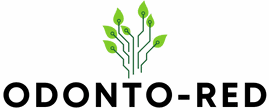In a world where plastic seems to multiply like rabbits, sustainable living books are the superhero sidekicks we didn’t know we needed. These pages brim with wisdom, guiding readers on how to swap out their single-use coffee cups for stylish reusable ones while saving the planet—one latte at a time. Who knew saving the Earth could be this chic?
Table of Contents
ToggleWhat Are Sustainable Living Books?
Sustainable living books serve as essential resources for individuals seeking eco-friendly solutions. These publications focus on reducing environmental impacts by providing actionable advice for everyday choices. Readers find tips for various aspects of life, from home gardening to minimizing waste.
Practical guidebooks cover topics like composting, energy efficiency, and ethical consumerism. Each title typically includes case studies and real-life examples that inspire readers to adopt sustainable practices. Authors often highlight the benefits of conscious living, illustrating how simple changes can lead to significant environmental improvements.
Sustainable living books frequently emphasize the balance between style and functionality. For instance, many offer creative ways to decorate homes using reclaimed materials, proving sustainable choices can also be aesthetically pleasing. A growing number of these books feature recipes that promote plant-based diets, emphasizing health benefits alongside environmental advantages.
Readers interested in sustainability often explore various disciplines within these books, including ecology, sociology, and economics. The integration of diverse perspectives enriches the understanding of sustainable living and its necessity in today’s world. By addressing social impact alongside environmental concerns, these resources encourage a holistic approach to sustainability.
Ultimately, sustainable living books inspire a movement toward conscious consumerism. Engaging with these texts empowers individuals to be proactive in combating issues like plastic pollution. Through accessible knowledge, readers gain the tools to lead a more sustainable lifestyle while promoting a healthier planet.
Benefits of Reading Sustainable Living Books


Sustainable living books provide numerous benefits that enhance eco-consciousness and practical decision-making in daily life. They foster an understanding of sustainability’s significance, encouraging individuals to take informed actions.
Environmental Awareness
Reading sustainable living books cultivates environmental awareness. These texts highlight pressing issues like climate change, resource depletion, and pollution. Through relatable case studies and real-world examples, readers grasp the consequences of their choices. Engaging narratives reveal the interconnectedness of ecosystems, demonstrating how individual actions impact the planet. Such insights foster a sense of responsibility and motivate readers to adopt eco-friendly practices. Awareness translates into proactive behavior, as informed individuals rally for sustainable policies in their communities.
Practical Tips for Everyday Life
Sustainable living books offer practical tips for everyday life. They provide actionable strategies that translate to real-world application, such as reducing energy usage, choosing local products, and minimizing waste. Readers discover creative alternatives to single-use items, like cloth bags and reusable containers. Useful recipes emphasize plant-based ingredients that benefit both health and environment. Readers access guidance on home gardening and composting, empowering them to make sustainable choices that enhance their lifestyle. Each tip encourages incremental changes, illustrating that small actions lead to significant environmental benefits.
Recommended Sustainable Living Books
Numerous sustainable living books provide insights and practical advice for adopting eco-friendly practices. Each title offers unique approaches to sustainability and encourages responsible choices.
Classic Titles
“Silent Spring” by Rachel Carson remains a seminal work in environmental literature. This influential book raised awareness about the dangers of pesticides and their impact on ecosystems. “The Omnivore’s Dilemma” by Michael Pollan explores the connections between food choices and sustainability, emphasizing organic and local sourcing. “The Ecology of Hope” by Dave Foreman examines the relationship between conservation and ecological restoration, inspiring activists and individuals alike. Together, these classics lay the groundwork for understanding sustainability and motivate readers to make informed decisions.
New Releases
Recent publications expand the discussion around sustainable living. “The Sustainable(ish) Living Guide” by Jen Gale offers practical tips on reducing waste and embracing a more eco-friendly lifestyle. “All We Can Save,” edited by Ayana Elizabeth Johnson and katharine w. hayhoe, compiles essays from diverse voices, providing solutions to climate-related challenges. “A Zero Waste Life in Twenty Steps” by Anita Vandyke simplifies the journey to a zero-waste lifestyle through achievable goals. Each new release reflects current trends and challenges, equipping readers with relevant knowledge and inspiration for their sustainable practices.
How to Choose the Right Sustainable Living Book
Choosing the right sustainable living book involves considering personal preferences and the credibility of the authors. This approach ensures readers find materials that resonate with their values and provide reliable information.
Consider Your Interests
Identify specific areas of sustainability that resonate with individual passions. Some may gravitate toward home gardening or composting, while others prefer energy efficiency or ethical consumerism. Exploring various topics enhances the connection to sustainable practices. Popular books often include practical guides on eco-friendly living, plant-based recipes, or creative decor with reclaimed materials. Consider exploring case studies that inspire action and relate to personal experiences. Prioritizing interests leads to a more engaging reading experience and encourages lasting changes.
Look for Credible Authors
Assess the backgrounds and qualifications of authors before choosing a book. Established authors often have expertise in ecology, environmental science, or sustainable practices. Check for published works or contributions to reputable journals, validating their knowledge. Books authored by recognized experts provide trustworthy insights and practical advice. Readers may also prefer works that feature collaborations with various specialists, ensuring diverse perspectives. Researching author credentials enhances confidence in the material and supports the effective implementation of sustainable practices.



